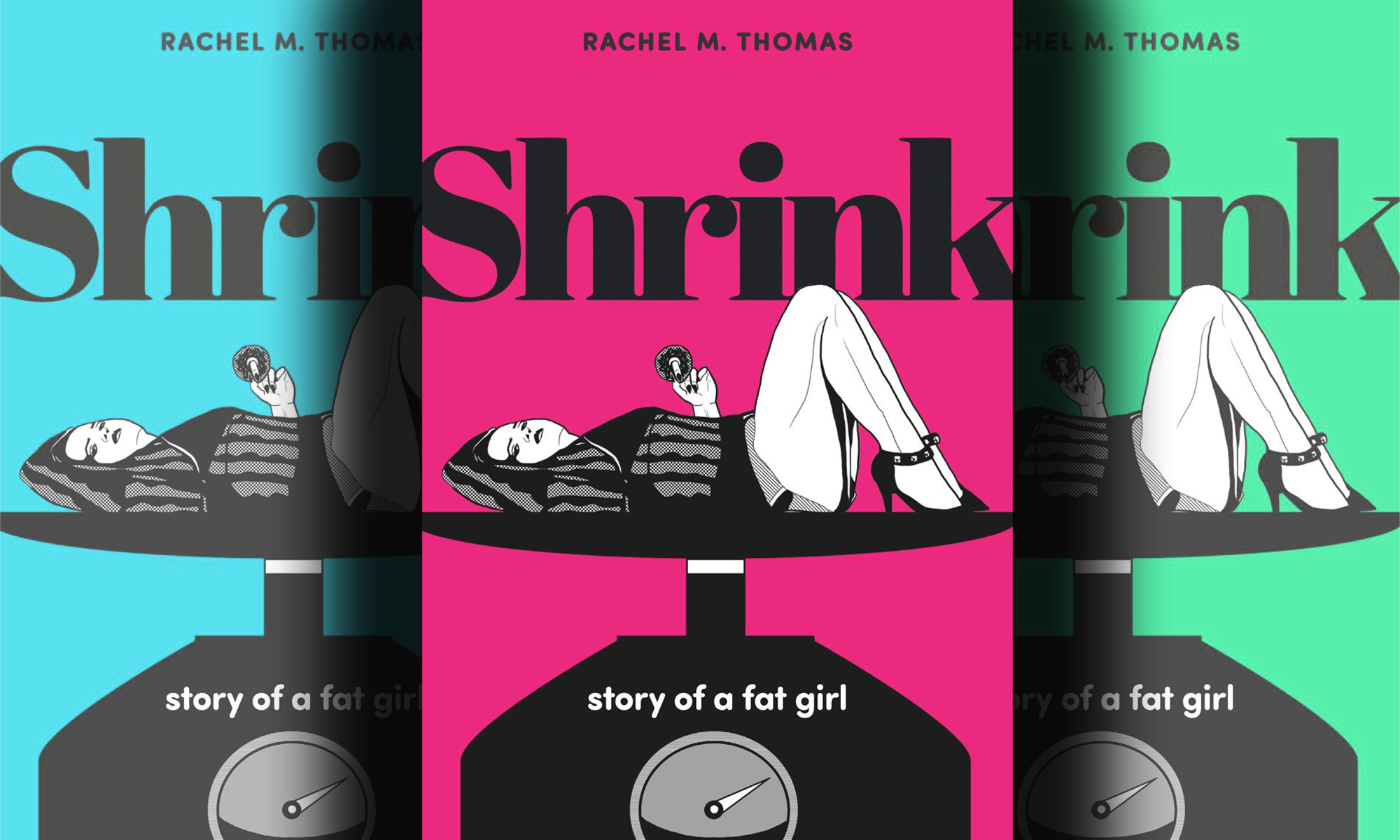What is it like to move through the world when everyone tries to change who and what you are? This is the fundamental experience that the graphic novel Shrink explores in its stylistic depiction of the author’s experience of being fat.
The book opens with the author in hospital. Even while lying in bed with oxygen tubes, Rachel M Thomas’s mind is racing – will people think she’s there because she’s fat? How are others judging her? This sense of claustrophobic, understandable paranoia persists throughout the novel.
As Thomas shows, to be fat is to be judged. Herein lies the most interesting contribution of this book: what does it mean to exist as a fat person in a hugely fatphobic society?
Thomas masterfully weaves together academic insight, autobiographical experience and graphic art to explore these questions. As the reader moves through her experiences of her body, we increasingly see how fatphobia shapes her experiences and interactions.
This includes the frustrating and anger-inducing experiences of accessing healthcare. Thomas is repeatedly told to just “lose weight”, even when it’s irrelevant to her health concern. Doctors choose to remind her that her body could be smaller instead of engaging with the specific symptoms she experiences.
Beyond the horrors of medical trauma is the horror of how strangers feel justified in commenting negatively on fat people’s bodies. Between making “oink” noises or snide comments, Thomas is also bombarded by media images of “ideal” body types, which compounds her negative relationship with her own body.
For me, one of the most interesting sections of the book was where Thomas discusses people’s relationship to fatness throughout history. She shows how fatness was not historically demonised the way it is now. Rather, a perfect storm of class, capitalism and medical bias have now come together to suggest that any fat bodies are “wrong”, without accounting for the fact that they can be as healthy – or even healthier – than some slimmer frames.
Spurred on by the negative responses to her body, Thomas begins calorie counting, excessive exercise and weight loss to facilitate her emotional journey. At some point, her health crashes because of her extreme approach, leading her finally to reset her relationship with her body.
Eventually, she comes to terms with the fact that no body is “normal” – each one has its quirks and challenges.
Shrink is a compelling, thoughtful and personal account of navigating a fatphobic society. The illustrations throughout the graphic novel pull on the reader’s emotions to feel empathy and connection with the narrator.
Similarly, Thomas’s knowledge of the academic literature in this field helps to ground her narrative in a wider academic context to show an account of some of the shared experiences of fatphobia.
Companion reading
This book is representative of one person’s navigation of fatphobia and so, evidently, cannot capture the gamut of experiences of fatness. Having said that, Thomas is mindful to explore how fatness might intersect with blackness and other minority identities.
For those readers wondering more about experiences of fatness and blackness, I recommend Fearing the Black Body by Sabrina Strings. Thomas herself draws on this book throughout Shrink, and I think they serve as perfect companions to one another.
Read more: ‘The Whale’ is a horror film that taps into our fear of fatness
Although I struggled with the fact that Thomas reached a place of self-acceptance largely through working through an unhealthy relationship with diet and exercise, this was an important part of her navigation of her body. This honesty around her experience is key to the impact of the graphic memoir.
It’s an interesting and accessible exploration of fatphobia, though readers who have a difficult relationship with food and exercise should exercise caution as the content may be triggering.
I enjoyed this book and felt that it affirmed some of my own experiences of navigating a world in a normal, and so imperfect, body. DM
First published by The Conversation.
Rosie Nelson is a lecturer in gender studies at the University of Bristol, England.
This story first appeared in our weekly Daily Maverick 168 newspaper, which is available countrywide for R35.





